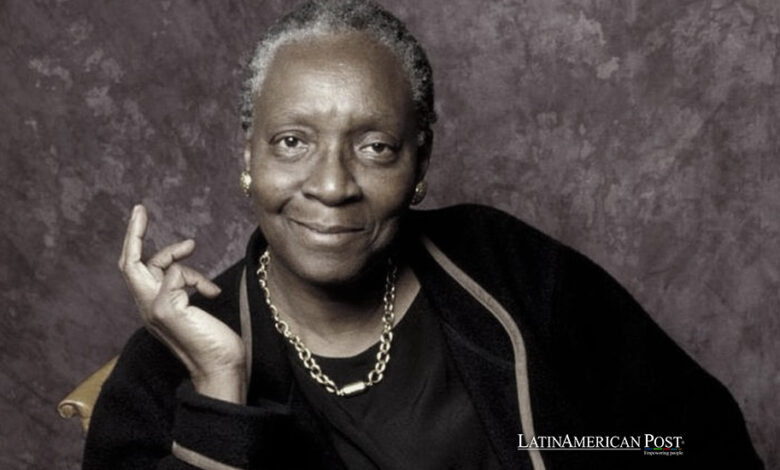Legacy of Maryse Condé: Caribbean Luminary and Literary Titan

“Renowned Antillean author Maryse Condé, a fierce advocate against slavery and racism, passed away at 87. Her legacy endures through groundbreaking novels that resonate across Latin America, embodying the spirit of resistance and cultural introspection.
The Caribbean literary world mourns the loss of one of its most prolific figures, Maryse Condé, who passed away at the age of 87. She left behind a legacy as vibrant and enduring as the region’s rich tapestry of cultures. Condé, born in Pointe-à-Pitre, Guadeloupe, was a formidable voice against the injustices of slavery and racism, themes that permeated her extensive body of work and resonated deeply within the Latin American and Caribbean diaspora.
Celebrated Novels: A Window into Complex Societies
Condé’s journey began in the picturesque landscapes of Guadeloupe and led her to the historic halls of Lycée Fénelon in Paris at the tender age of sixteen. There, she met her first husband, Mamadou Condé, a Guinean actor, marking the beginning of a life intertwined with cultural intersections and literary exploration. Although their marriage ended in divorce, it was a testament to the fusion of African and Caribbean cultures that would later characterize her work.
Her academic and professional pursuits took her across Africa, from Guinea to Ghana and Senegal, where she imparted knowledge as a French teacher before returning to France. During these formative years, Condé’s experiences in Africa profoundly influenced her narrative style and thematic choices, culminating in the publication of her first novel, “Hérémakhonon,” in 1976. This work set the stage for a literary career that would span decades and earn her international acclaim.
Condé’s novels, mainly “I, Tituba, Black Witch of Salem,” “Segu,” and “The Migration of Hearts”—an Antillean retelling of Emily Brontë’s “Wuthering Heights”—are celebrated for their intricate narratives and richly drawn characters, offering a window into the complexities of Caribbean and African societies. Her writing, characterized by its lyrical prose and incisive critique of colonial and postcolonial landscapes, has been a beacon for understanding the nuanced history of the Caribbean and its diaspora.
Global Recognition and Influence: A Literary Icon
In 1985, Condé’s academic achievements were recognized with a Fulbright Scholarship for teaching in the United States, further solidifying her influence on Caribbean literature. Her commitment to fostering literary talent was also evident in her involvement with the Caribbean and Guyana Prize for Literature, celebrating the region’s scholarly achievements.
Condé’s receipt of the Alternative Nobel Prize in Literature in 2018 was a crowning achievement, acknowledging her ability to depict “the ravages of colonialism and the postcolonial chaos with precise and, simultaneously, devastating language.” Her portrayal of these themes garnered critical acclaim and sparked discussions on identity, migration, and cultural heritage across Latin America.
Maryse Condé’s impact extends beyond the Francophone Caribbean to countries like Cuba, Colombia, and Brazil, where her narratives of resistance and resilience resonate with local histories of colonialism and slavery. In Cuba, her works have paralleled the country’s struggle with racial and cultural identity, while in Colombia, her exploration of African heritage and identity mirrors the Afro-Colombian experience. Condé’s exploration of black and female identity in Brazil has echoed the Afro-Brazilian fight for equality and recognition.
As tributes pour in from across the globe, it is clear that Maryse Condé was not just an Antillean treasure but a literary giant whose works transcended geographical and linguistic boundaries. Her novels remain a testament to the power of storytelling in capturing the human experience, embodying the struggles and triumphs of a people forever marked by history.
Also read: Peru’s Pioneers First Intercultural Library in the Amazon
In the end, Maryse Condé leaves behind not just a collection of works but a legacy that continues to inspire and challenge. Her life’s journey—from the shores of Guadeloupe to the classrooms of Africa and the salons of Paris—reflects a relentless pursuit of truth through literature. Her stories, woven from the threads of her own diverse experiences, will continue to enlighten and engage readers, serving as a bridge between past and present and between the Caribbean and the wider world of Latin America.




